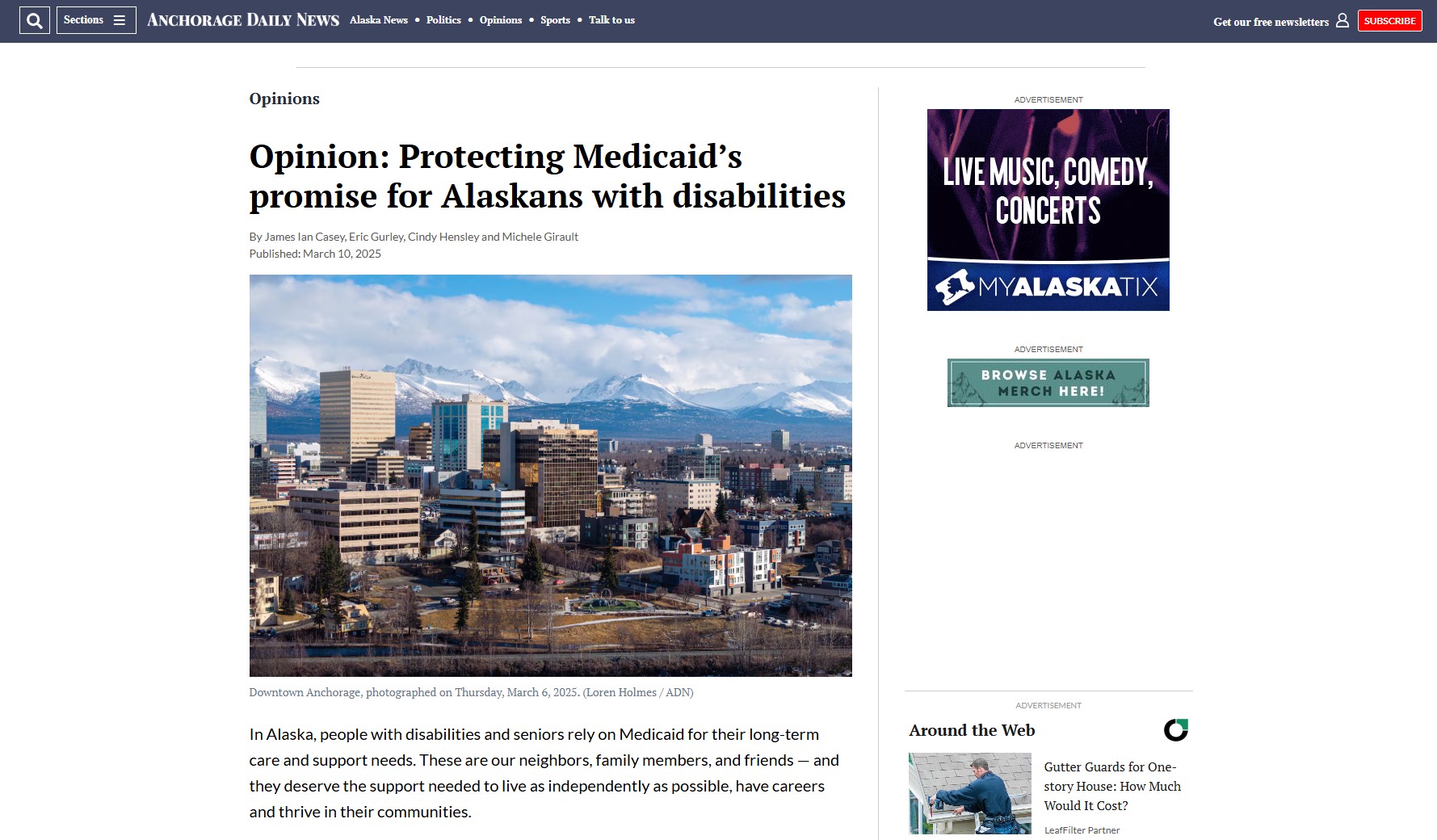2025 Outstanding Professional of the Year
April 15, 2025
At many organizations, exceptional employees stand out from time to time. At Hope, it happens all the time. Our team consistently demonstrates compassion, commitment, leadership, and a heart for serving—qualities that have earned many of them well-deserved recognition over the years.
Today, we’re proud and honored to celebrate another remarkable employee's achievement.
Please join us in congratulating Momodou "Mo" Mboob, who has been named the 2025 Outstanding Professional of the Year in the field of Severe Mental Health Illness. The award was presented to Mo at this month’s Full Lives Conference.
Mo has been with Hope since 2013 and currently leads our team in Utqiaġvik as the Mental Health Resident Manager. To know Mo is to witness compassion in action. He is more than a provider—he is a pillar of strength, a trusted presence, and a fierce advocate in one of the most remote communities in the nation. He brings dignity and empathy to those he serves. Every single day.
During his acceptance speech, Mo shared a message that resonated beyond the walls of the conference, “We all have a moral responsibility to bring mental illness out of the shadow. Recovery is possible. Seeking treatment is a sign of strength, not a sign of weakness. If we take the theme of this conference seriously—building our shared future together—we can get rid of the stigma and embarrassment, advocate for adequate resources, and take some pain and give people who choose our supports a new sense of hope.” He challenged the audience to join him on this journey, his words a reminder of the work still ahead—and the courage it takes to face it.
No one knows the depth of that courage more than his wife, Jessica Elston, who works alongside Mo as a Mental Health Associate. In reflecting on his moment of recognition, she said, “This award is not just a certificate on a wall; it’s a testament to his tireless commitment to healing hearts and minds in Utqiaġvik, Alaska. Watching him be honored was a moment I’ll never forget. He wasn’t just ‘Mo the [Resident Manager]’ or ‘Mo the provider’—he was a beacon of hope for a community that too often goes unseen. Seeing the crowd rise in applause was a surreal, powerful reminder that even in the coldest corners of the world, warm hearts and healing hands are making a difference."
Those who know Mo know what Jessica means when she says that he doesn’t just listen—he hears; he doesn’t just speak—he connects.
Working in Utqiaġvik can be isolating. Life there means long winters, a lack of sunlight, limited supplies, and spotty internet—but even in solitude, Mo shows up every day, grounded and present. His impact goes far beyond his office. He mentors young professionals, collaborates with tribal leaders, and advocates for culturally competent care for Arctic communities. Because of him, clients regain strength, families begin to heal, and resilience is reborn.
Jessica said, "This award reminds us that even in the most remote corners of our country, excellence matters—and so does heart. Mo isn’t just doing a job; he’s answering a calling. And for our family, there’s no greater honor than standing beside a man who brings hope where it’s needed most.”
Mo’s leadership is creating real, lasting change. We celebrate not only his much-deserved recognition but also the consistent courage and commitment it represents. Hope's Executive Director, Michele Girault, said, "Mo's commitment to the people he supports, his team, and the community has set a standard so deserving of recognition. He is a humble leader who truly sees beyond the stigma of mental illness to support people to meaningfully contribute and succeed." Our organization and all of Alaska—especially Utqiaġvik—are better because of him.
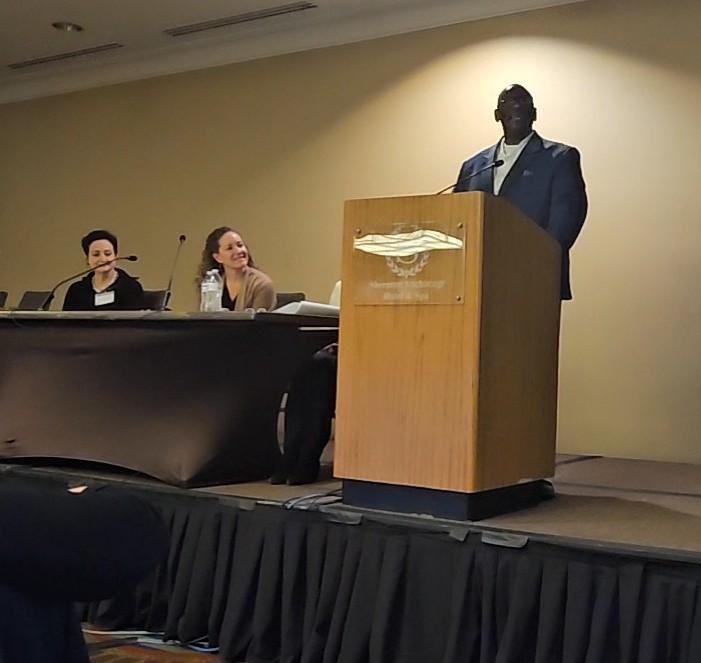 |
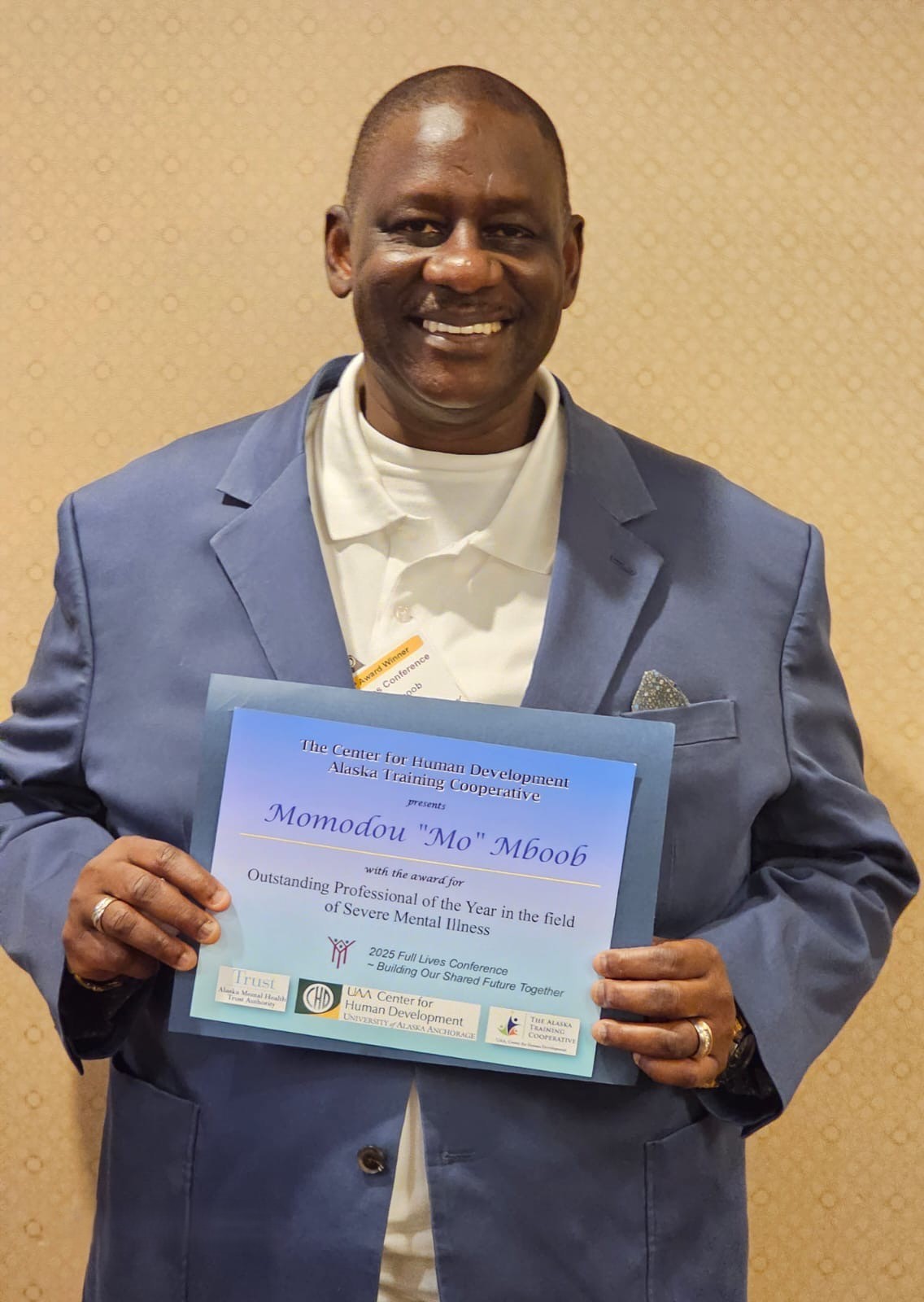 |
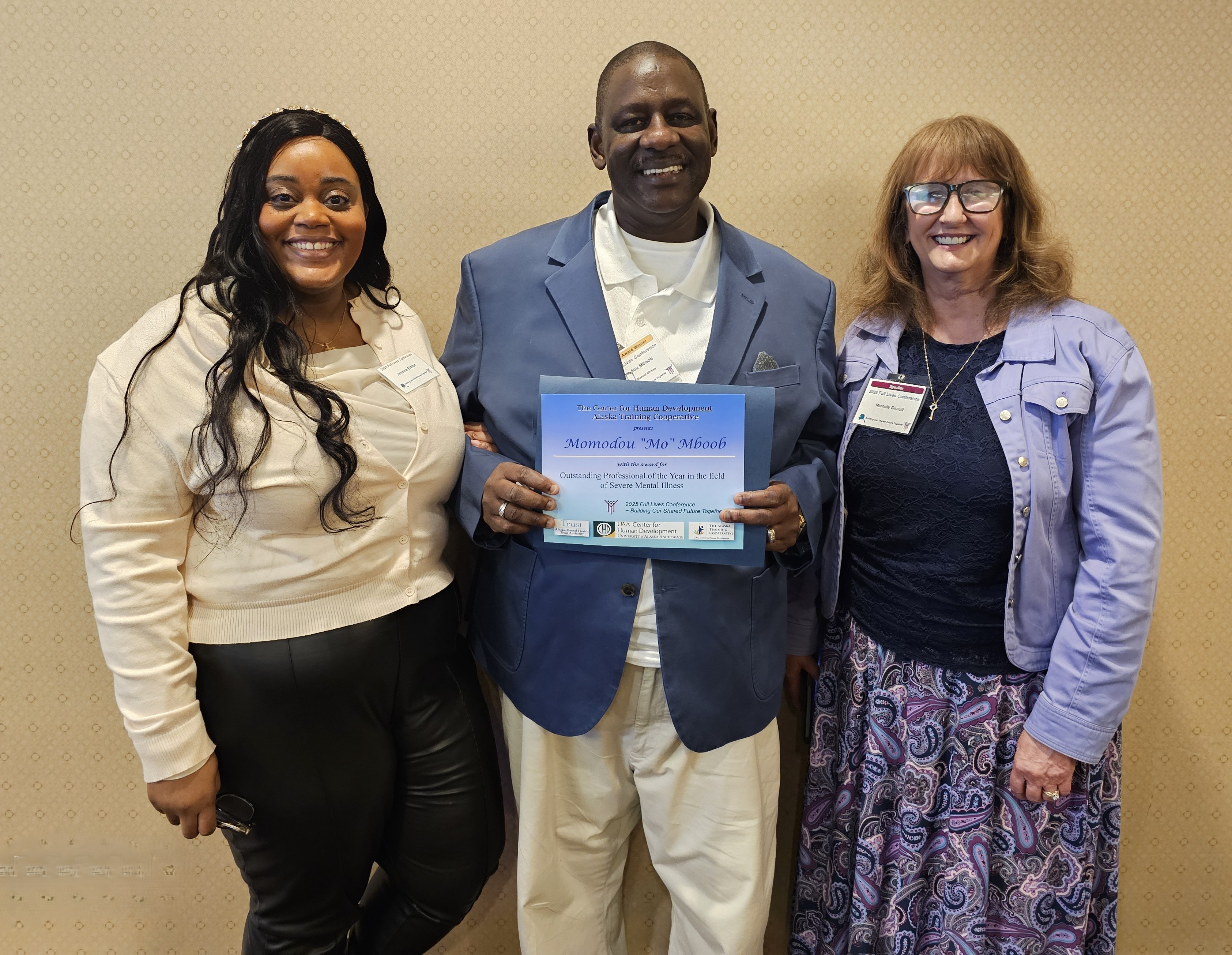 |
Aloha Spring Dance
April 14, 2025
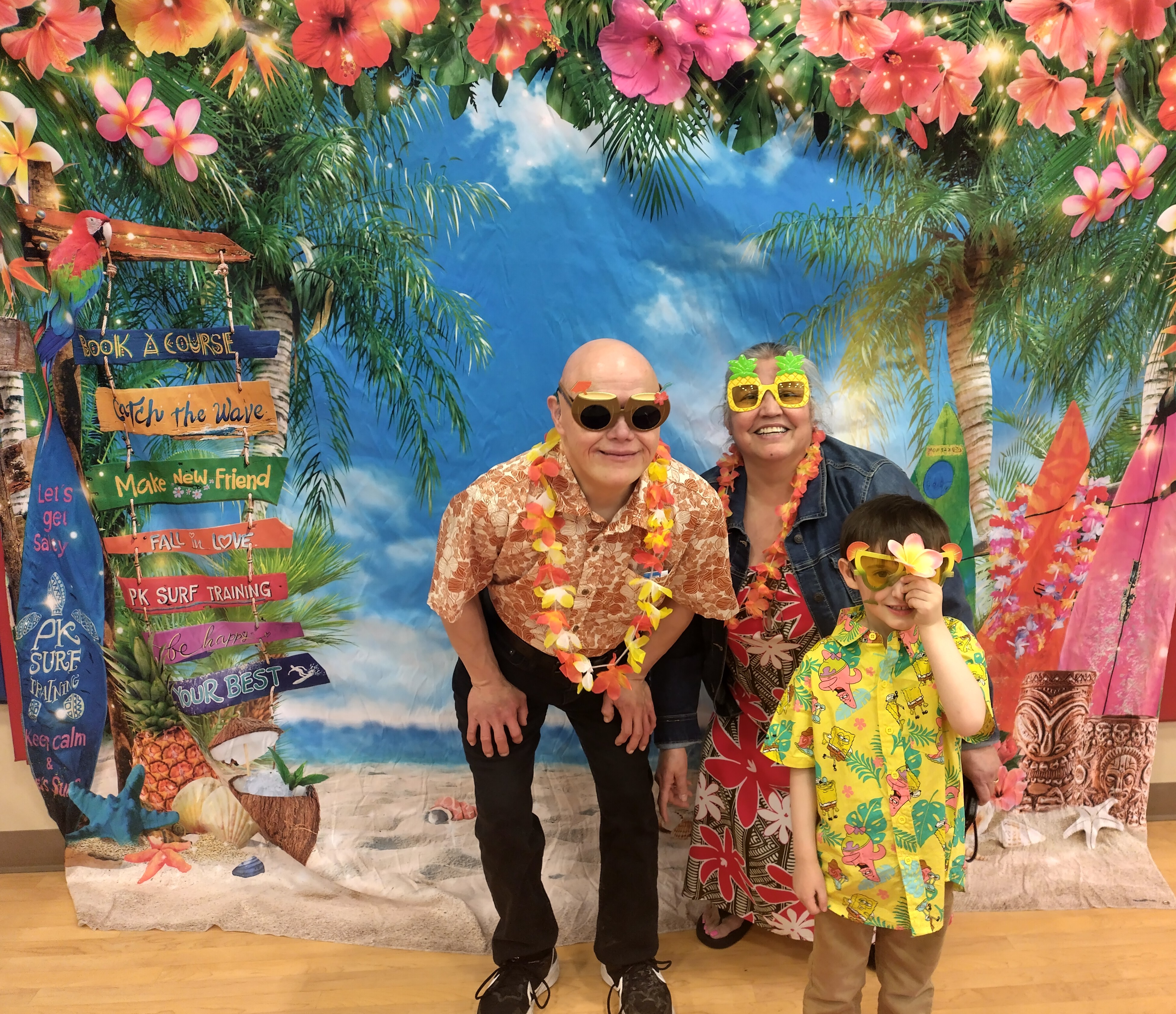 |
 |
 |
Special Visit from Zack Gottsagen
April 11, 2025
 |
 |
 |
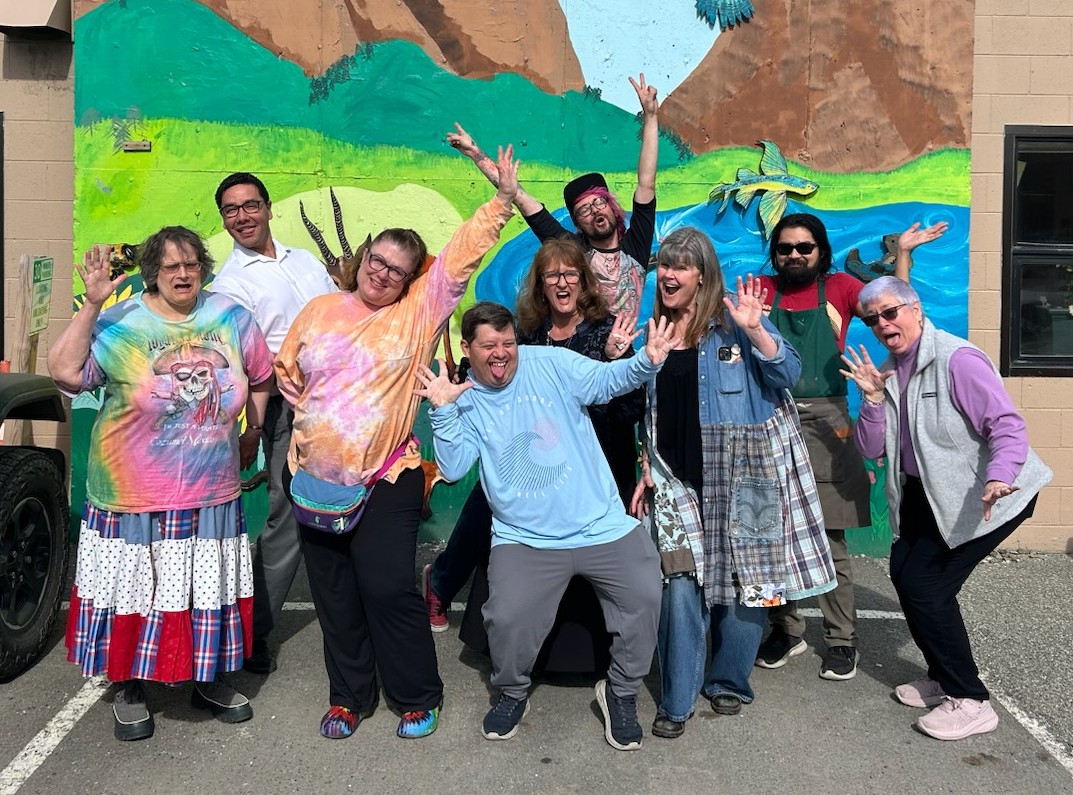 |
 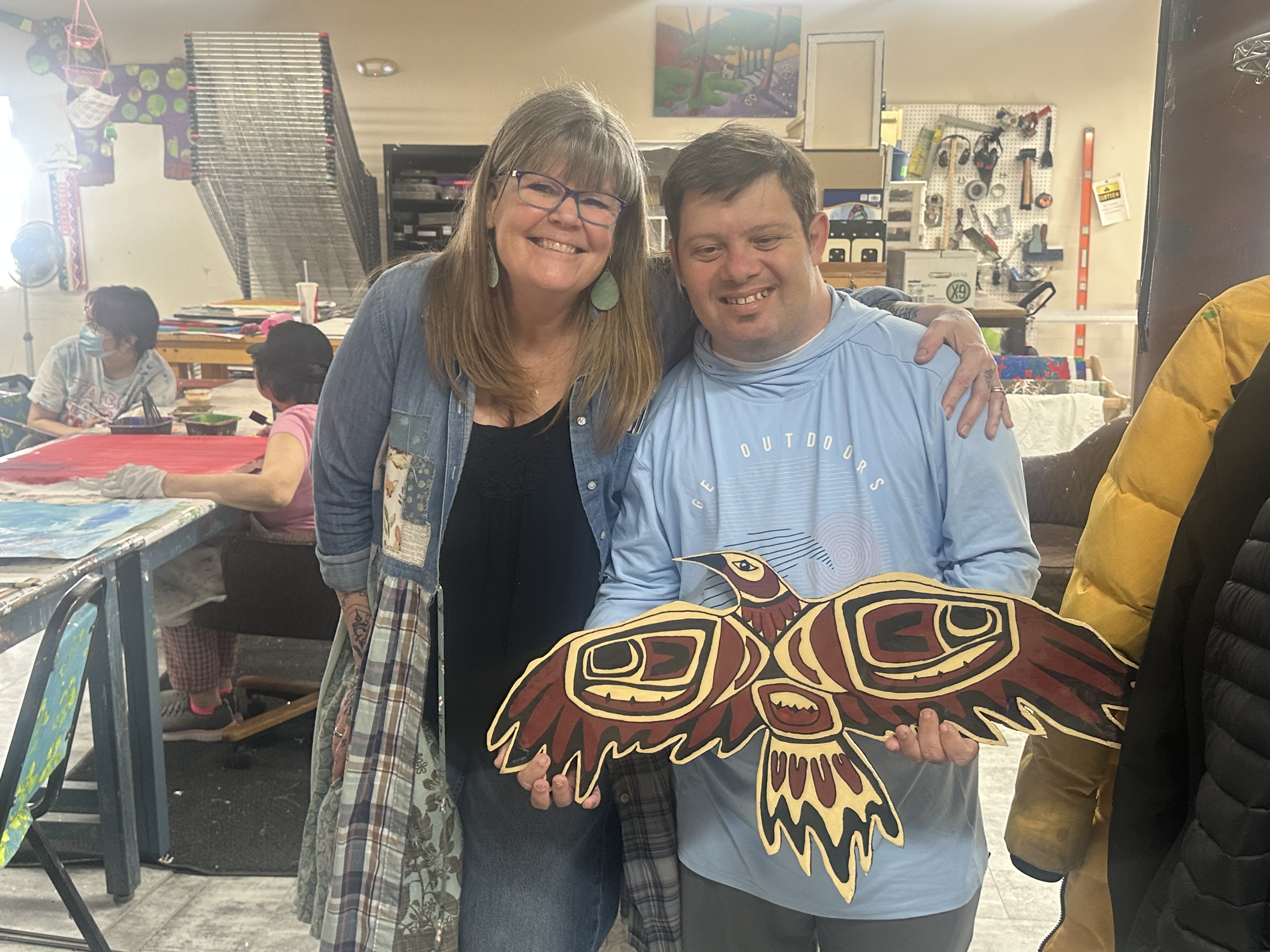 |
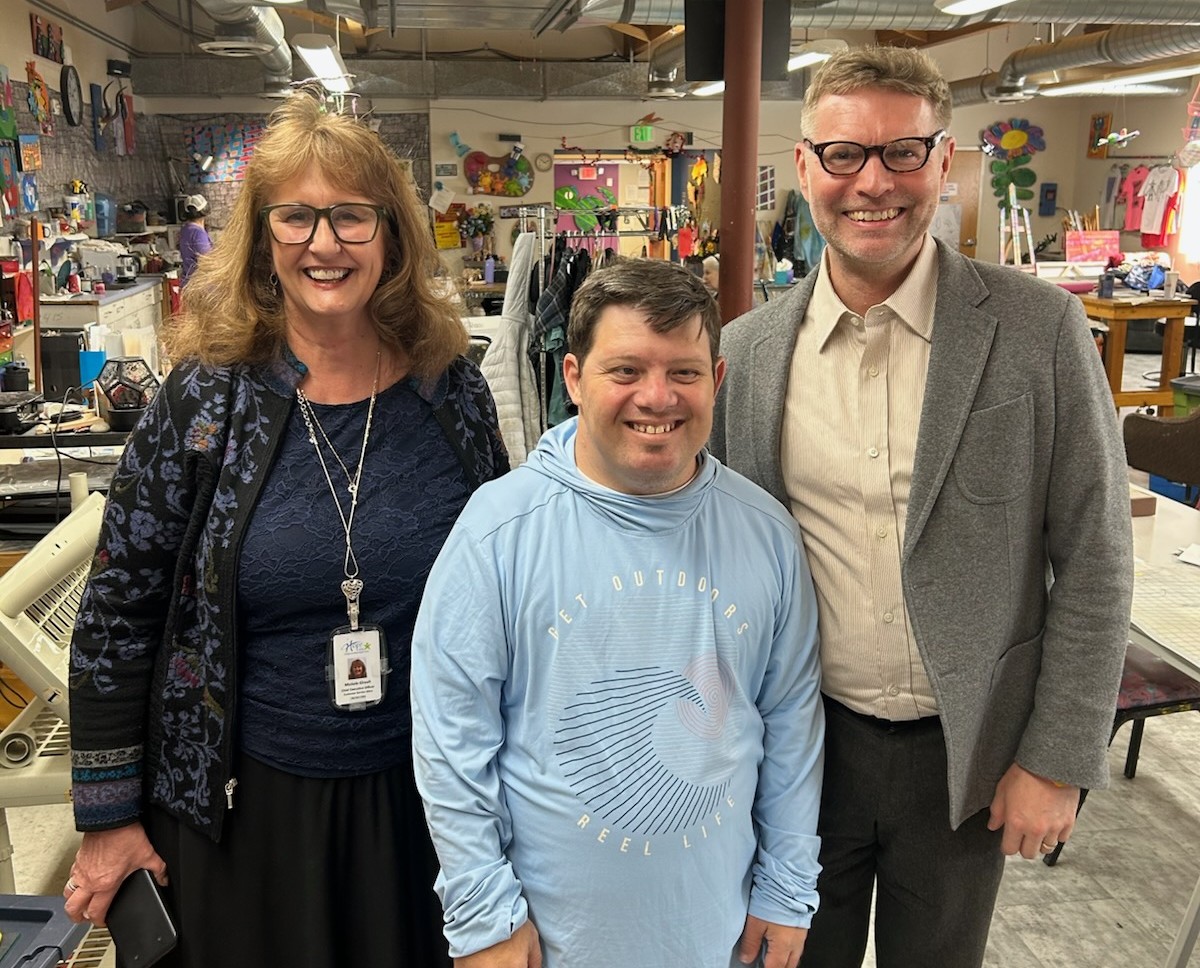 |
Are you prepared for a potential volcanic eruption?
April 9, 2025
As we continue to monitor the situation with Mount Spurr, we want to ensure that all employees are prepared in the event of an ashfall. The Alaska Volcano Observatory (AVO) has said that an eruption within the next few weeks to months is likely, but not guaranteed. While the exact timing and impact of a potential eruption remain uncertain, the best course of action is to be prepared. Please review the following important steps:
Prepare Your Family & Home
- Develop an action plan so everyone knows what to do if ashfall occurs. (Don’t forget to include pets in your planning.)
- Stock up on emergency supplies, including food, water, and medical necessities, ensuring you have at least a week’s worth of essentials in case of disruptions.
- Add N95 masks and wrap-around goggles to your emergency kits to protect your lungs and eyes from ash exposure.
- If ash begins to fall, stay indoors as much as possible, keep windows and doors closed, and use damp towels to seal drafty areas.
Safety During and After Ashfall
- If outside, wear protective gear (masks, goggles, gloves, and long-sleeved clothing).
- Minimize driving, as volcanic ash can reduce visibility and cause damage to vehicles.
- Be cautious during cleanup—ash is slippery and heavy, especially on roofs. If removing ash, wear protective gear and avoid overloading surfaces.
- Be mindful that fine ash can damage electronics and appliances—cover sensitive equipment and avoid bringing ash inside.
Stay Informed
- Sign up for text alerts from the Municipality of Anchorage by texting ANCHORAGE to 67283 or signing up online.
- Visit the Alaska Volcano Observatory for real-time updates on Mount Spurr and the latest ash dispersion models.
- Check the State of Alaska's Emergency Management site for preparation and safety updates, including their fact sheet on Mount Spurr.
- Review the Municipality of Anchorage’s Office of Emergency Management guidelines on preparing for volcanic ash.
For more details, refer to the guidelines below on health safety during ashfall and staying safe in the event of an eruption. If you have any questions or need assistance, please don’t hesitate to reach out.
| Learn more about how to stay safe during ashfall | Read about the health hazards of volcanic ash |
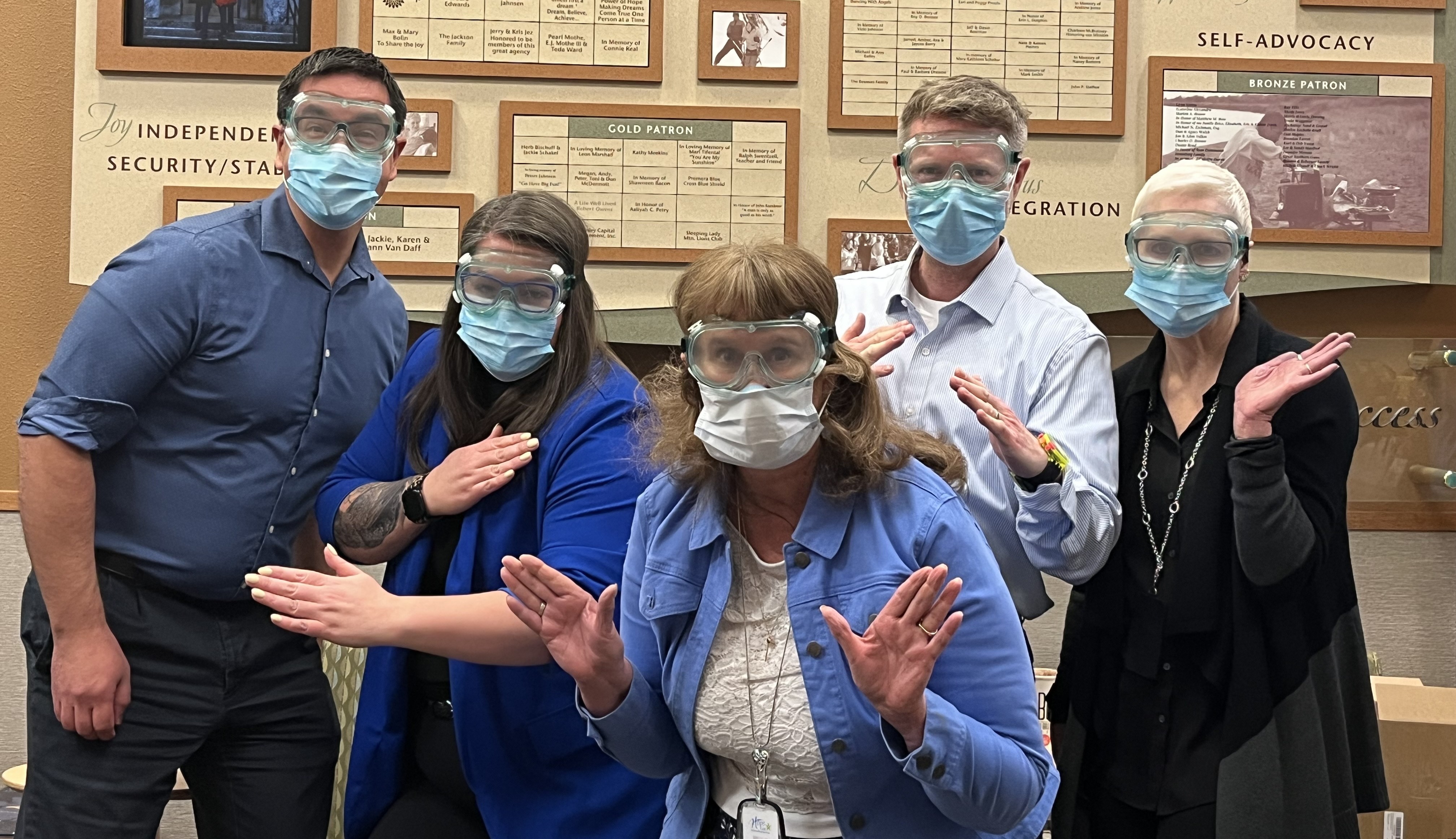
Thank you UC San Diego Volunteers
April 7, 2025
Thank you to the great group of students from the University of California San Diego who spent their spring break giving back! They traveled to Alaska for a week of service learning and volunteered for three days with Hope, from collaborating with our artists in Hope Studios to assisting our maintenance team.
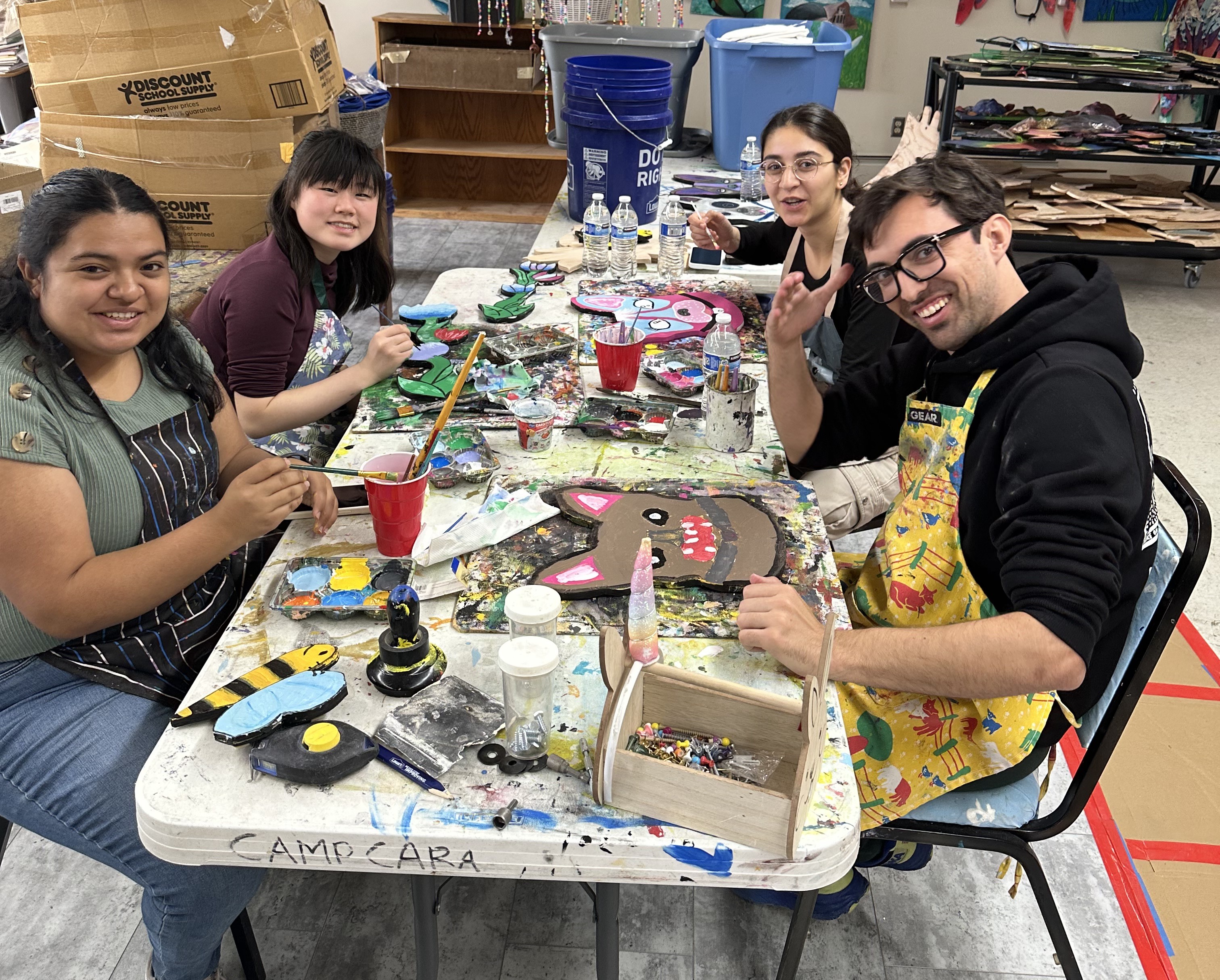 |
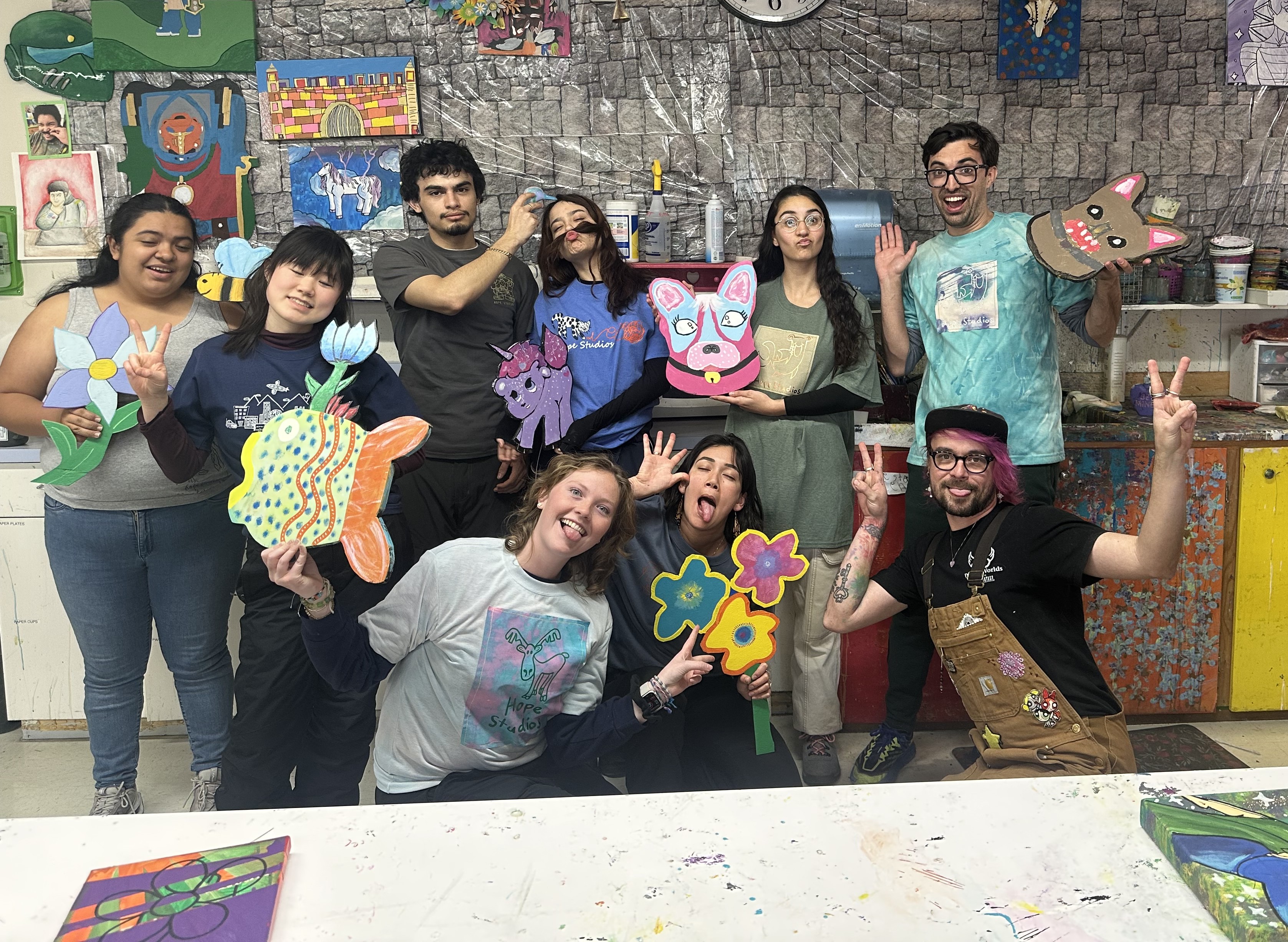 |
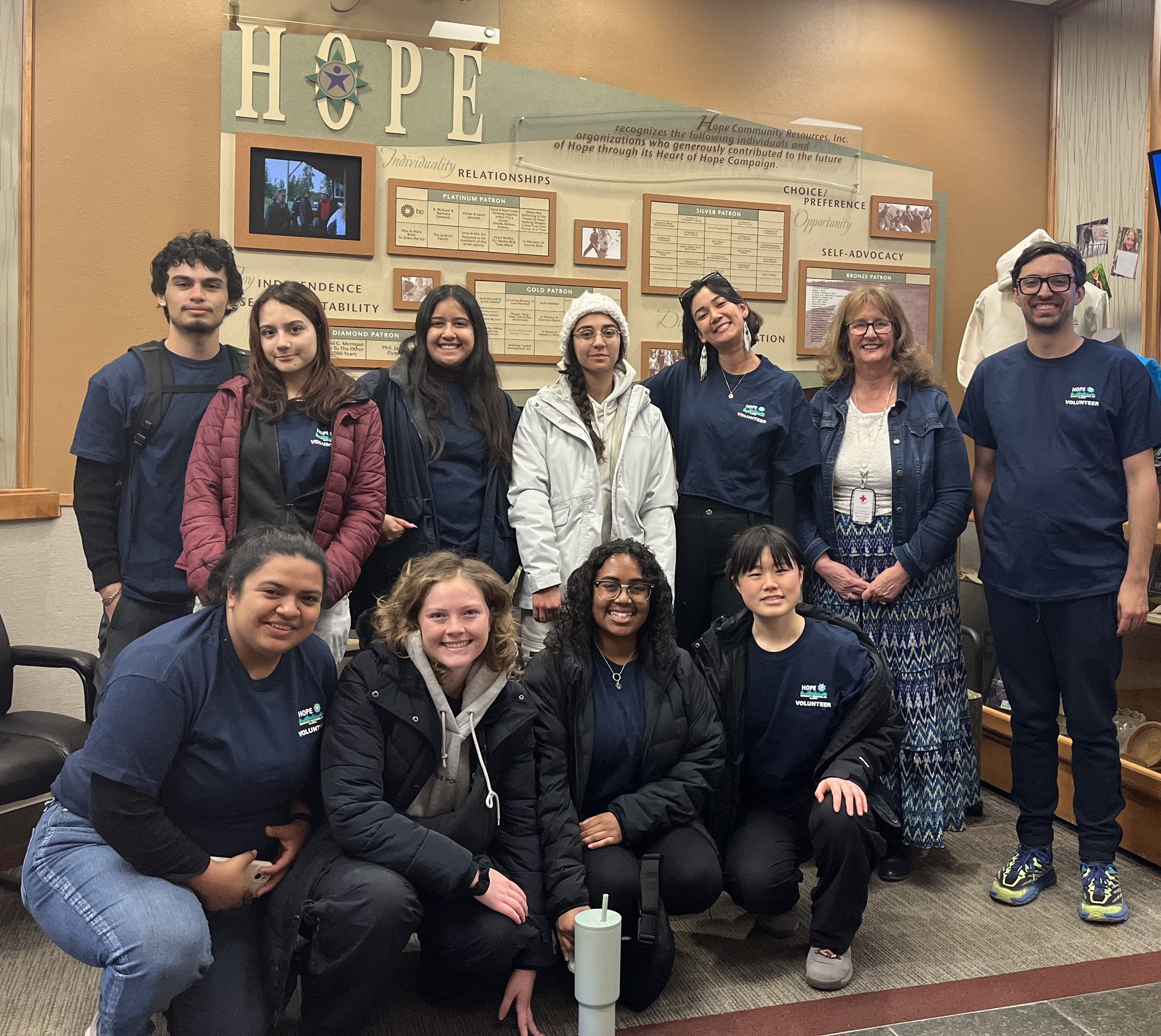 |
National Month of Hope
April 4, 2025
April is the National Month of Hope, a time to recognize the power of hope to inspire action, connection, and change. Hope begins with us—in every interaction, every role, and every person we serve. This national observance was created to remind us all that hope is powerful…and contagious. When we choose to act with hope, we help others find it too.
Throughout April, we’ll reflect on the four pillars of hope—each one a reminder that hope touches every part of life.
- Hope for Self – Reignite belief in your own purpose, growth, and power.
- Hope for Family – Strengthen and honor the personal connections that keep you grounded.
- Hope for Community – Inspire hope through small acts in your community that make a big difference.
- Hope for the Nation & World – Recognize how your daily efforts contribute to something bigger.

2025 DSP of the Year Awards
April 3, 2025
Autism Awareness Day
April 2, 2025
Light it up Blue for Autism Awareness Day!
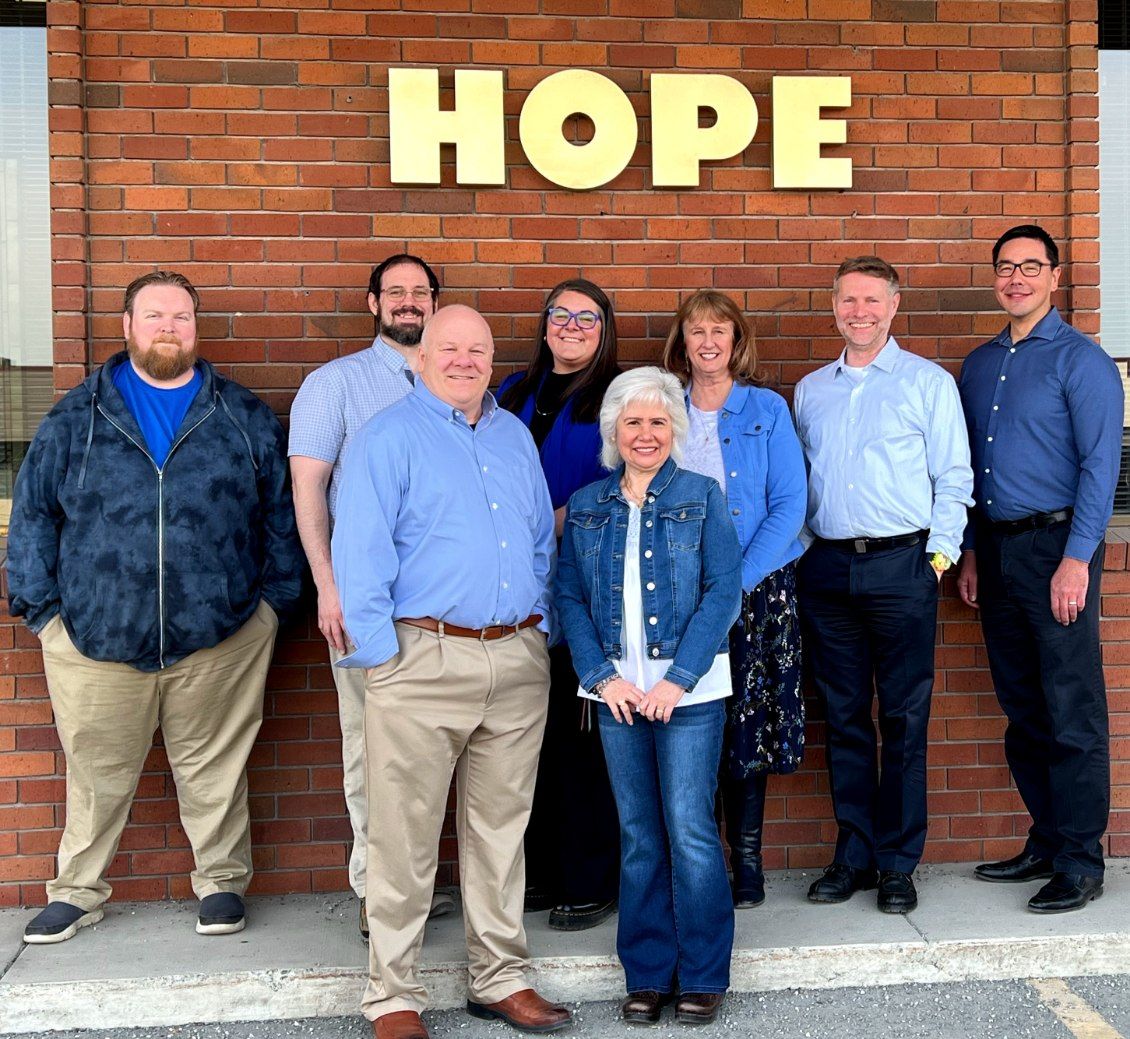
World Autism Month
April 1, 2025
What is World Autism Month?
April is World Autism Month, a time dedicated to promoting understanding and acceptance of autism. April 2nd is specially recognized as World Autism Awareness Day. Throughout this month, we encourage discussions on the language and symbolism associated with autism and participation in events that promote wellness and inclusivity.
Autism Awareness Events in April
In honor of World Autism Month, join one or more of the following events to raise awareness and acceptance for Alaskans with Autism Spectrum Disorder, their families, and supporters.
- April 2: Light it up Blue'! Every April, the world comes together to recognize World Autism Month, and on April 2nd—Autism Awareness Day—we invite you to 'Light It Up Blue' to show your support for the autism community! Light It Up Blue is a global initiative that encourages people, businesses, and landmarks to shine blue lights and wear blue in honor of people with autism. By participating, you will help spark conversations, raise awareness, and promote acceptance for autism.
- 💡 Wear Blue – Show your support by dressing in blue and encouraging friends and family to do the same.
- 💡 Light Up Your Space – Change your home or business lights to blue or display blue decorations.
- 💡 Spread Awareness – Share autism facts, stories, and resources on social media using #LightItUpBlue and #AutismAcceptance.
- 💡 Support Autism-Friendly Organizations – Donate, volunteer, or get involved with initiatives that empower people and families with autism.
- April 4: Join us at the Kenai Community Center for a FREE training on Understanding Autism, Neurodiversity, and Challenging Behaviors.
- April 26: The Alaska Autism Resource Center (AARC) is hosting an in-person Walk in Anchorage to raise awareness and acceptance for Autism. The event will feature family-friendly activities, and they will be giving away door prizes donated by the community. Click here for more details and to sign up.
- April 1-30: In an effort to get even more Alaskans involved in World Autism Month, the AARC and Special Education Service Agency (SESA) are also hosting a virtual Walk-a-Thon for the month of April. Click here for more details and to sign up.
This event is free to join and allows you to show your support by walking, rolling, or moving how you choose! You can also order your Walk T-Shirt and are automatically entered to win our Walk-a-thon prize give-aways.
The History of Autism Iconography
Language and the symbols we use have tremendous power in shaping how we view our world and ourselves. Words and symbols can have different meanings for different people, and they can evolve over time. The same symbol may have different meanings for different people. This is also true when it comes to autism and the evolution of how we speak about and represent it. Throughout history, autism iconography has evolved, reflecting a shift toward more respectful, person-centered language and a continued effort to destigmatize autism. The first symbol widely recognized as representing autism was the puzzle piece, designed in the National Autistic Society (NAS) in 1963 to represent the complexity of the condition. Notably, this symbol was created by a non-autistic individual, NAS board member Gerald Gason.
In 1999, The Autism Society of America introduced the puzzle piece ribbon and shifted language toward person-centered language, using terms like "person with autism." The puzzle pattern was brightly colored to signal hope, and the interconnected pieces reflected the diversity of people and families with autism. This symbol came into widespread use when the organization Autism Speaks used them in large nationwide awareness campaigns in the early 2000s. Some people in the autistic community have negative associations with the puzzle piece symbol due to its association with words and phrases like 'puzzling,' 'mysterious,' and 'missing a piece'. Because of this, the iconology evolved again into a rainbow-colored infinity symbol to signify the infinite diversity and possibilities within the autism spectrum.
Beyond the puzzle piece and infinity symbol, other symbols have also been introduced to represent autism, including the butterfly, symbolizing transformation and the beauty of diversity, and the color blue to represent calmness and the need for community-wide acceptance of autism. The "Light It Up Blue" campaign uses the color blue to promote autism awareness and encourage greater understanding and support.
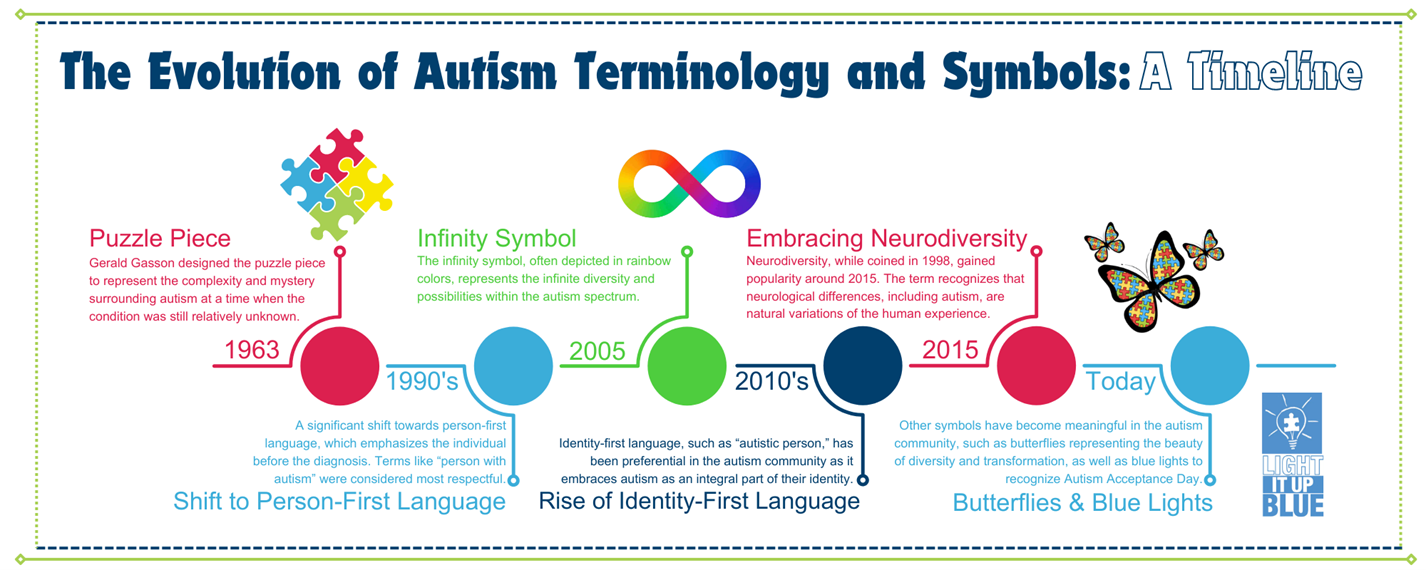
Since the 2010s, there has been a growing movement toward identity-first language, such as referring to someone as an “autistic person” rather than a “person with autism.” Many in the autism community prefer this terminology because it acknowledges autism as an integral part of their identity rather than something separate. This shift reflects a broader acceptance and celebration of neurodiversity, recognizing autism as a natural and fundamental aspect of who someone is.
The concept of neurodiversity has gained significant recognition in recent years. This perspective acknowledges that neurological differences, including autism, are natural variations of the human experience. Rather than viewing these differences as deficits, neurodiversity promotes the idea that they should be respected and valued. The adoption of neurodiversity-friendly language within autism advocacy reflects a commitment to inclusivity and respect for all people.
The Impact of Language and Symbols
Language and symbols play a powerful role in shaping public perceptions and attitudes. The evolution of terminology and iconography in the autism community is more than just a linguistic shift—it represents a cultural movement toward acceptance, respect, and empowerment. When we use respectful, person-centered language, we recognize and value autistic individuals for who they are. Throughout April, we encourage everyone to learn, reflect, and celebrate the uniqueness of every individual. Increasing understanding and inclusivity will make the world a more supportive and accepting place for everyone.
Alaska's Shared Vision 2.0
March 31, 2025
Stories of Hope Newsletter
March 31, 2025
You're invited to the 2025Walk & Roll for Hope!
Hope Community Resources, Inc. invites you to our annual Walk & Roll for Hope!The purpose of this annual tradition is to unite our community in support of Alaskans with intellectual and developmental disabilities. Join us for this iconic event featuring scenic routes, food and refreshments, live music, and family fun—all while making a meaningful difference in people's lives. This year’s theme, "Hope Starts Here," highlights the importance of keeping children with disabilities and complex medical needs in Alaska rather than being sent out-of-state to institutions. By participating in the Walk, you are helping to create a future where every child can receive the care and support they need right here in Alaska—their home.
What's new for 2025?This year, we're making some exciting changes to the Walk & Roll for Hope for Anchorage participants. For the first time, the event will take place on a Thursday evening instead of the traditional first Saturday in May, allowing participants to enjoy better spring weather. Additionally, we're bringing a new 'Taste of Anchorage' experience to the Walk route! During and after the Walk, you'll have the opportunity to enjoy delicious treats from some of Anchorage’s best local restaurants such as Humpy's Great Alaskan Alehouse and Spenard Roadhouse. |
|
|
Five ways you can support the Walk✅ Sign up. Register to walk or roll with us in Anchorage and/or Kenai. Walkers ages 18 and older register for $35, walkers ages 11-17 register for $25, and walkers ages 10 and under can register for free. The registration fee helps cover the costs of organizing the event and ensures that more of the funds raised go directly toward supporting Alaskans with intellectual and developmental disabilities. ✅ Donate. Every donation—big or small—helps provide essential care and support for children and adults with disabilities in Alaska. Your contribution will directly fund Hope's program that keeps families together and ensures children receive the services they need close to home. Our goal is to raise a total of $75,000 or more, so every dollar counts. ✅ Fundraise. Take your support a step further by raising funds for the cause. Raise $100 or more and receive a FREE Walk & Roll for Hope t-shirt. Raise $200 or more and receive a commemorative Walk & Roll for Hope hoodie. Raise $300 or more and receive both! Plus, for every $100 you raise by noon on Friday, May 2, you will receive an entry into a drawing for two round-trip tickets to any destination Alaska Airlines flies. View our Fundraising Toolkit for tips on how to maximize your fundraising efforts. ✅ Volunteer. Be part of the team that makes this event possible! We need volunteers to help with event setup, registration, route support, and more. Volunteering is a great way to support our mission, connect with the community, and be part of something meaningful. Respond to this email for more details. ✅ Share. Multiply your impact by encouraging your friends and family to join you. Whether they walk, roll, donate, or cheer from the sidelines, every participant strengthens our community and helps spread awareness about the importance of inclusive services in Alaska.
History of the WalkPrior to Alaska's statehood, people who experienced intellectual or developmental disabilities faced limited services and, in some cases, involuntary institutionalization. By 1942, more than 2,000 Alaskans—including very young children—were living at Morningside Hospital in Oregon, separated from their families, homes, and communities. The first Walk for Hope was a pivotal moment in Alaska’s history, bringing nearly 4,000 people together to advocate for children with disabilities to return home from out-of-state institutions. More than five decades later—while a lot of progress has been made—the Walk for Hope continues as an annual reminder of the ongoing work still to be done. As long as even one person with a disability has to wait for services, as long as one child in need of support is sent out of state due to lack of local resources, and as long as accessibility barriers persist, Hope will continue to walk (and roll) to raise funds to meet those needs. Every step, every roll, and every dollar counts!
|
Alaska's disability advocates make a powerful statement at this year's Key Campaign
March 31, 2025
More than 12 advocates attended the 38th annual Key Campaign in Juneau, Alaska, marking a strong return to in-person advocacy since the pandemic. With financial support from the Alaska Mental Health Trust, the Mat-Su Health Foundation and the Governor’s Council the campaign focused on five critical priorities—1) expanding early intervention services, 2) Continuing support to maintain the plan to eradicate wait lists, 3) modernizing guardianship statutes, 4) improving accessibility and funding for public transportation and 5) requiring universal changing spaces in public buildings.
Advocates met with nearly every legislator in the building, sharing personal stories and emphasizing the urgency of change. U.S. Senator Lisa Murkowski spoke with Key Campaigners, reaffirming her commitment to Medicaid and community disability services. Senator Cathy Giessel was recognized as this year’s " Gold Key Champion," honoring her dedication to supporting policies/funding that improve the lives of Alaskans with disabilities. The energy was high as attendees rallied on the Capitol steps, amplifying the campaign’s message of unity and disability rights.
The momentum does not stop here—we encourage our community to stay engaged by attending town halls, contacting legislators, and sharing stories. The Key Campaign is an example that when we come together, we make a lasting impact. Let’s keep the momentum going!
File your PFD by Monday
March 25, 2025
What you need to know about Bird Flu, Influenza, and COVID this season
March 24, 2025
Avian influenza, or bird flu, specifically the H5N1 strain, has been spreading among wild birds, poultry, and even some mammals across multiple states, leading to devastating effects on the poultry industry and significant economic losses. Since early 2024, about 68 human cases of bird flu have been reported. Thus, the CDC says the risk to the general public is low, but experts are keeping a close eye on it since the virus could change and start spreading more easily between people. The U.S. has stockpiled H5N1 vaccines just in case, and Moderna is working on new mRNA vaccines to prepare for any potential outbreaks.
Meanwhile, the 2024-2025 flu season has been severe, with about 41 million cases, 540,000 hospitalizations, and 23,000 deaths so far. Influenza A is the dominant strain this season. Hospitals have seen an increase in complications, particularly among young children, older adults, and people with underlying health conditions. Symptoms like high fever, body aches, fatigue, and persistent cough have been hitting hard. Health officials stress the importance of getting the annual flu shot, which can significantly reduce the risk of severe illness and hospitalization. Even if vaccinated individuals still get the flu, symptoms are typically milder, and recovery is faster. Other preventive measures, such as frequent handwashing, covering coughs and sneezes, and staying home when sick can also help reduce the spread.
COVID-19 is still around too, with cases and hospitalizations rising from time to time, especially among unvaccinated and high-risk individuals. Health officials are monitoring new variants, and vaccines continue to do a good job of preventing serious illness. Booster shots are highly recommended for older adults and anyone with a weakened immune system.
Staying informed, getting vaccinated, and practicing good hygiene are the best ways to protect yourself and those around you as these viruses continue to circulate.
Debunking Flu Myths
|
|
|
|
World Down Syndrome Day
March 21, 2025

Lesko Discovery Center Summer Camp
March 20, 2025
Hope's Summer Camp registration is now open! Apply for your camper to attend Summer Camp and give them a summer of adventure, friendship, and fun.
What is Hope's Summer Camp?
Adventure. Inclusion. Friendship!
Hope’s Summer Camp provides a fun, educational, and inclusive experience for children and young adults (ages 9-20) with and without intellectual and developmental disabilities. From June 23 – August 8, campers will enjoy seven weeks of engaging activities and exciting adventures that promote teamwork, social skills, and confidence—all in a supportive environment led by our trained staff.
Each day features trips and outtings throughout the Anchorage community, such as visits to parks, nature trails, and museums. Campers are encouraged to develop independence and make decisions, while receiving support from our staff to ensure a fun and safe experience. Our goal is for every camper to leave with a sense of accomplishment, confidence about their unique strengths, and memories that will last a lifetime!
Camp Fees
- $160 – $200 per week for campers receiving approved Medicaid services with Hope
- $1,008 – $1,455 per week (includes camp fees and hourly service costs) for campers not using waivered services
- Additional fees may apply per week based on activity
- Limited financial aid may be available for families in need
Who Can Join?
Our camp is open to children and young adults ages 9-20, and we welcome campers who experience intellectual and developmental disabilities, traumatic brain injuries, and mental health challenges. Spaces are limited, so apply today and make summer 2025 one to remember. We look forward to welcoming you and your camper to Hope’s Lesko Discovery Center Summer Camp!
We hope to see you there!
Summer Camp 2025
Weekly Activities

WEEK 1: June 23 - June 27
Welcome to Summer! Campers will dive into the best of summer fun. This week is all about adventure, team-building, and making new friends as we kick off the season with exciting activities and outdoor exploration, including hiking, exploring waterfalls, visiting local parks, playing social games, tie-dyeing t-shirts, and more.

WEEK 2: June 30 - July 3
(Closed Friday, July 4th)
Get ready for an explosive week of exhilaration! We will celebrate the spirit of summer with patriotic fun, outdoor barbecues, handmade crafts, and water games at H2Oasis. Join us for a week of friendship and unforgettable summer memories.

WEEK 3: July 7 - July 11
Embark on an exciting journey of discovering creatures, wild animals, and magical adventures. Campers will see animals from all over this great state and beyond. We will visit the Flying Horse Equestrian Center, the Alaska Zoo, the Salmon Express, and more.

WEEK 4: July 14 - July 18
Summer is in full swing, and this week is the perfect way to soak up the season with a week packed full of adventure, laughter, and classic camp excitement, including a visit to the Wildlife Conservation Center, Anchorage/Trolley Tour, and Jewel Lake for swimming, kayaking, and canoeing.

WEEK 5: July 21 - July 25
Spread your wings and explore the world from a whole new perspective. This week we will learn about the wonders of flight, nature, and adventure through activities inspired by birds and aviation. We will visit The Bird Treatment Center, the Alaska Aviation Museum, and Byron Glacier Trail.

WEEK 6: July 28 - August 1
Just like the vibrant fireweed that flourishes in summer, this week is all about growth, resilience, and embracing the great outdoors. This will be a nature-inspired, adventure-filled week of creativity and fun. We will visit The Anchorage Museum, the Alaska Botanical Gardens, and Arctic Valley.

WEEK 7: August 4 - August 8
During the final week of Camp, we will celebrate each camper's personality, culture, and uniqueness. We will visit the Musk Ox Farm and Alaska Native Heritage Center, and conclude Camp with a Hope Talent Show that all campers will have the opportunity to participate in!
Sponsor a Child to Attend Summer Camp
Would you consider making a donation to our Summer Camp? Your generous contribution will open the door for youth and young adults in our community to access educational experiences through our Summer Camp program. Every summer, our campers experience a journey of creativity, adventure, and discovery. From hands-on educational activities and outdoor exploration to artistic expression and team-building experiences, Camp is a place where young people grow, connect, and thrive.
But not every family can afford the cost of Camp. That’s where you come in.
By donating to our Summer Camp Scholarship Fund, you make it possible for children—regardless of financial circumstances—to attend Camp and build memories that last a lifetime. Your support provides access to a safe, enriching, and inspiring environment where every camper can learn, play, and belong.
Questions? Contact Hope's Community Engagement Center at 907-433-1700 or [email protected].
Advocates and supporters of Alaskans with disabilities rally at the Capitol
March 20, 2025
Key Campaign 2025
March 19, 2025
Thank you King Tech High School Volunteers
March 19, 2025

Top 40 Under 40
March 18, 2025
 |
 |
Happy Hope Anniversary, Eliseo Ramos
March 17, 2025

Hope Studios First Friday
March 13, 2025
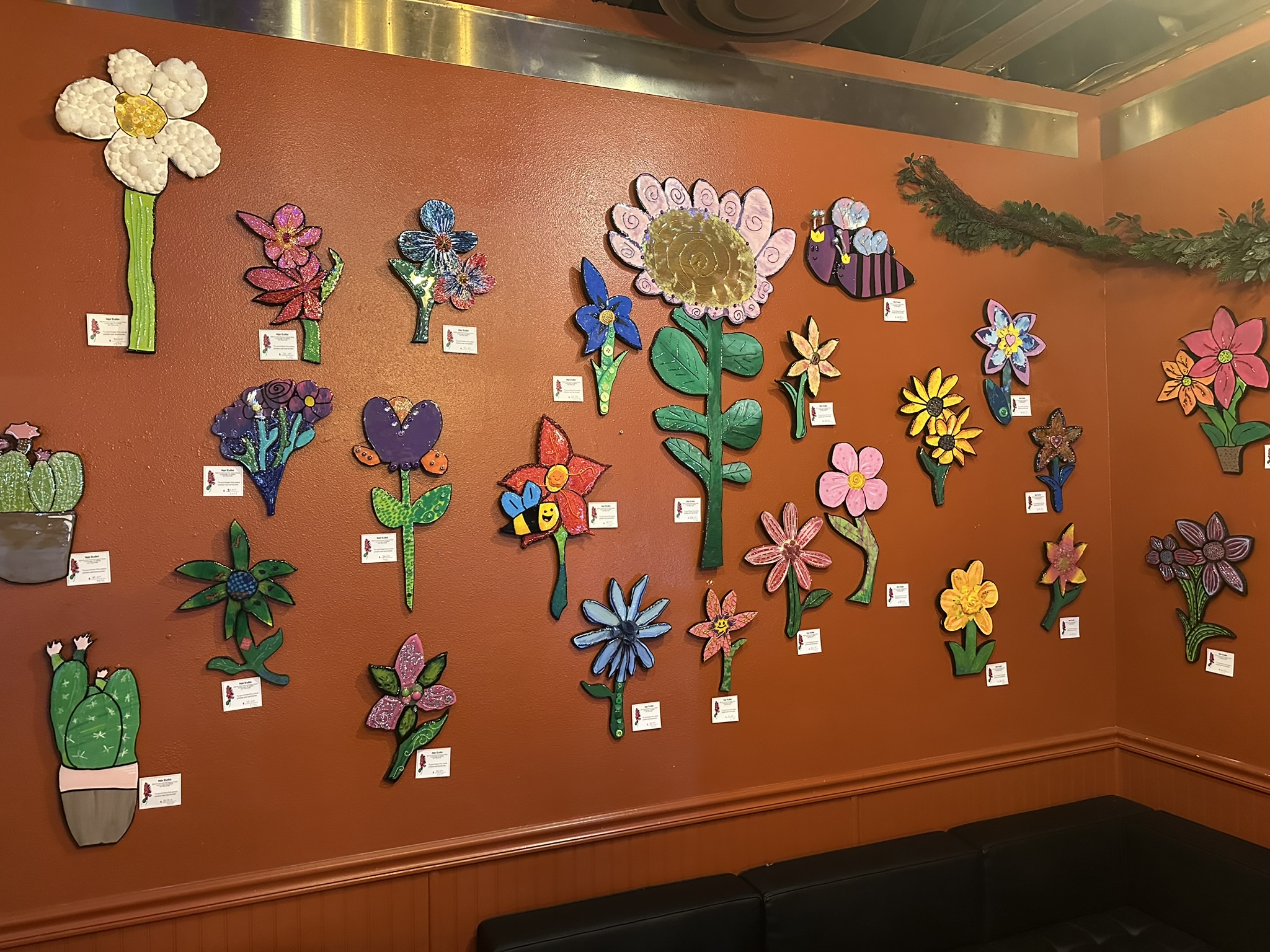 |
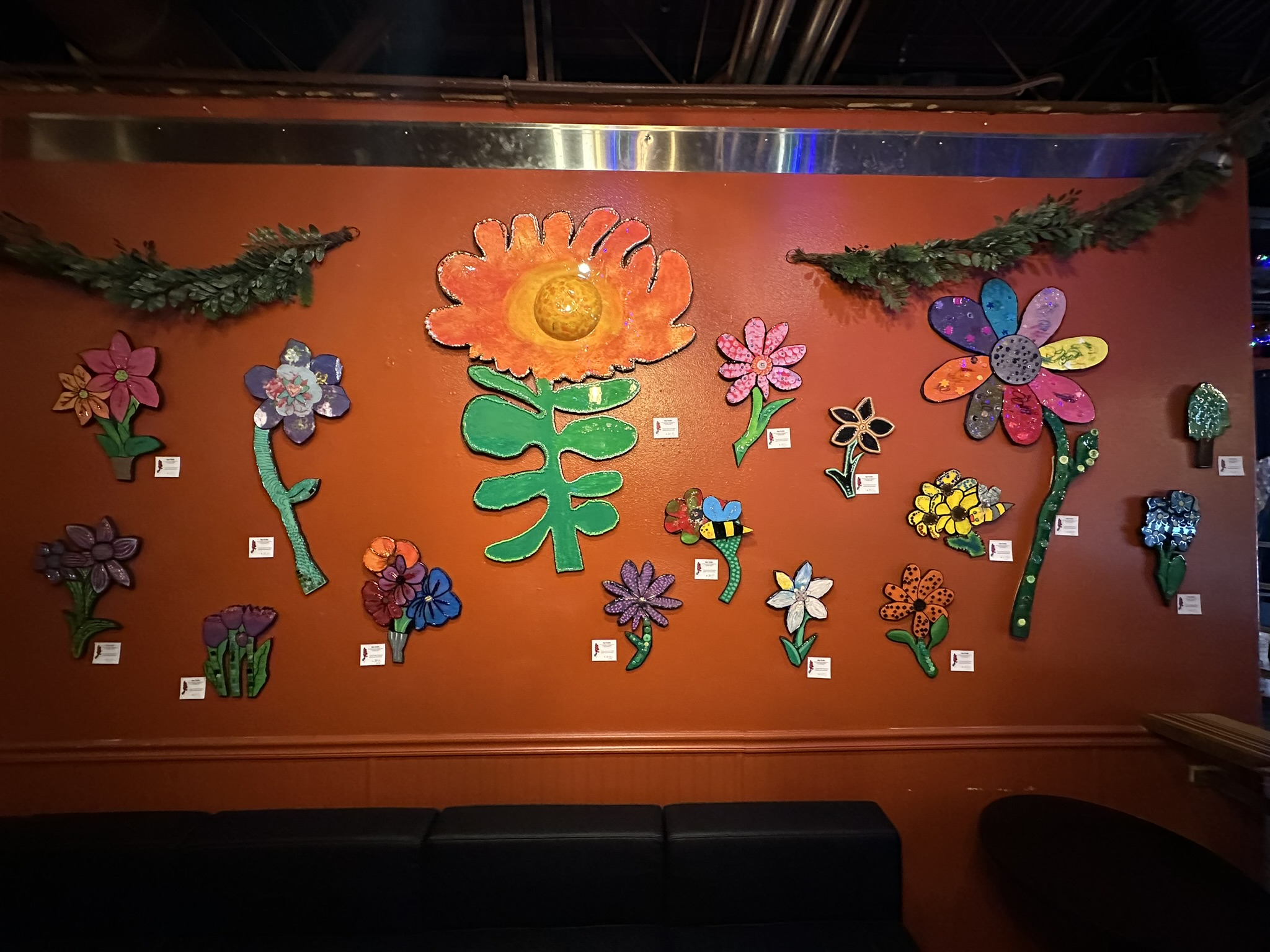 |
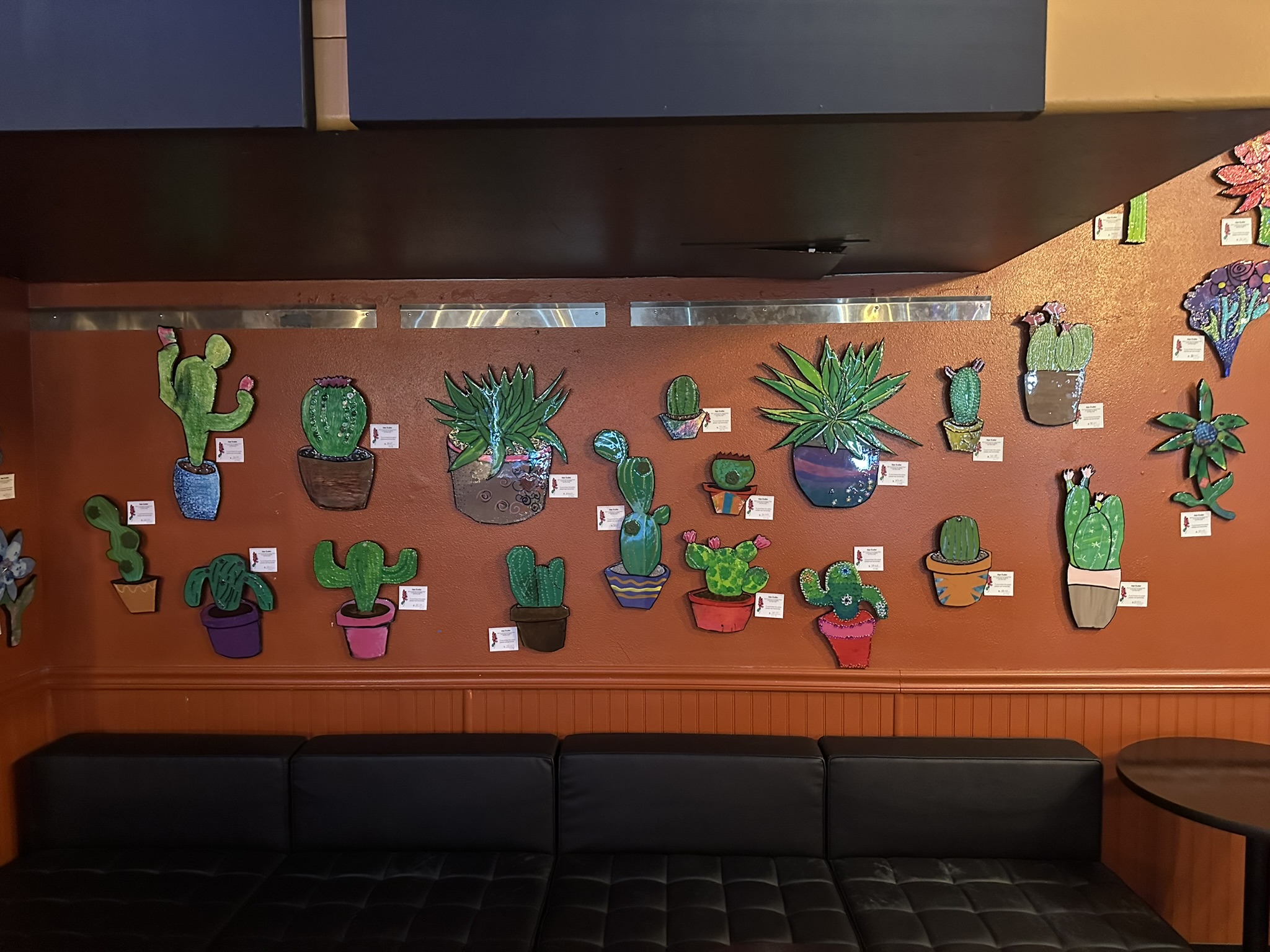 |
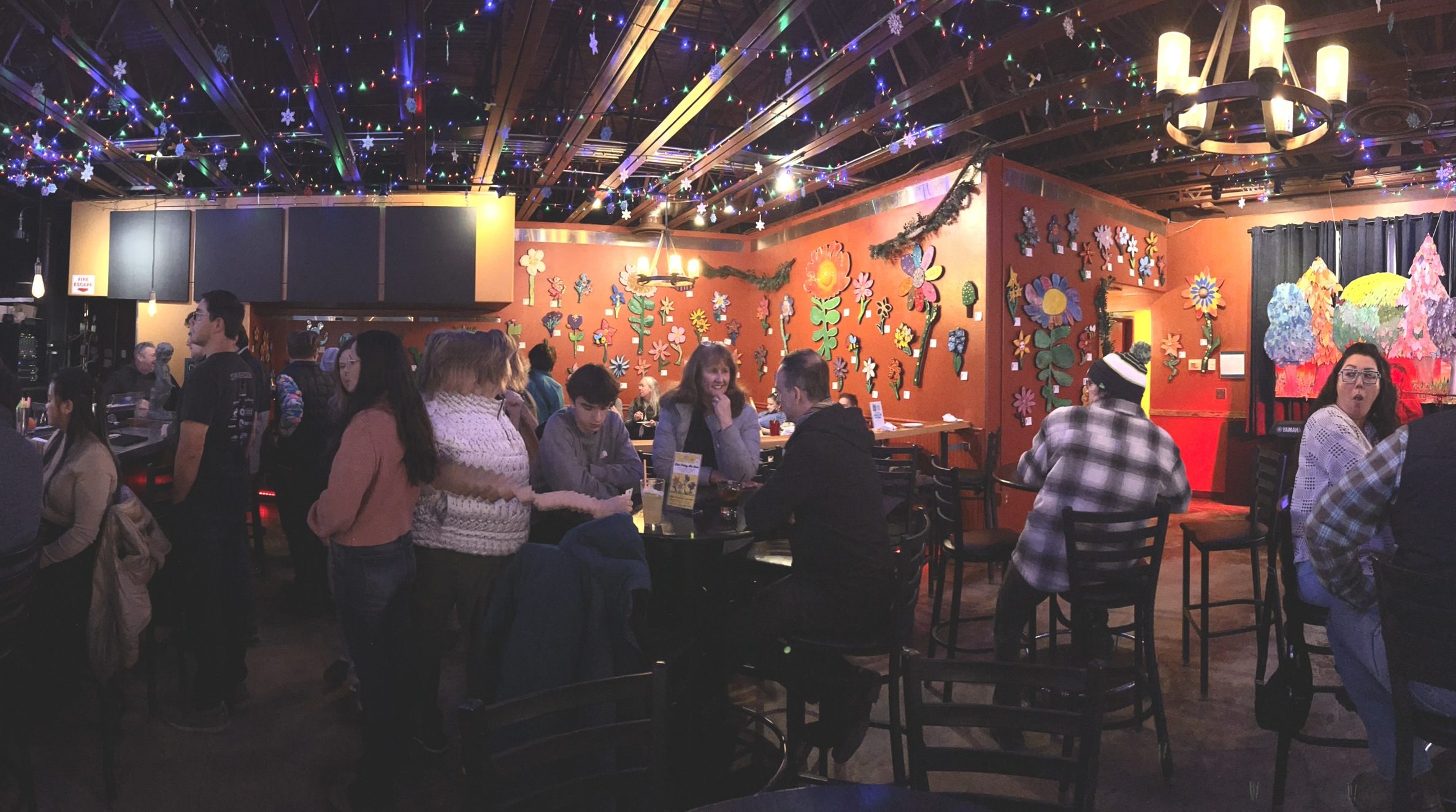 |
||
Protecting Medicaid's Promise for Alaskans with Disabilities
March 10, 2025
"Medicaid isn’t just a line item in the federal budget—it’s a lifeline for our family, friends and neighbors."
International Women's Day
March 8, 2025





